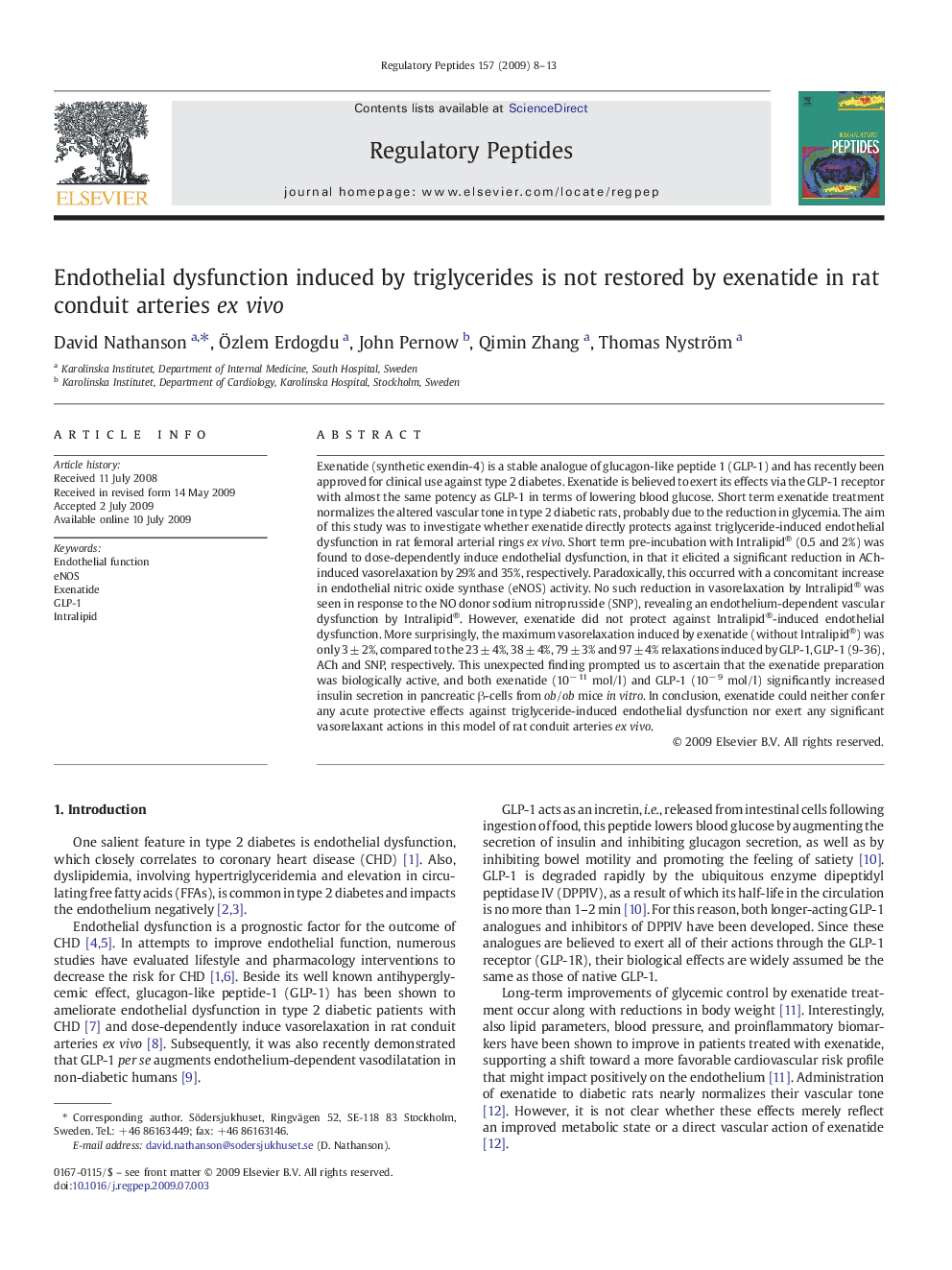| Article ID | Journal | Published Year | Pages | File Type |
|---|---|---|---|---|
| 2023044 | Regulatory Peptides | 2009 | 6 Pages |
Exenatide (synthetic exendin-4) is a stable analogue of glucagon-like peptide 1 (GLP-1) and has recently been approved for clinical use against type 2 diabetes. Exenatide is believed to exert its effects via the GLP-1 receptor with almost the same potency as GLP-1 in terms of lowering blood glucose. Short term exenatide treatment normalizes the altered vascular tone in type 2 diabetic rats, probably due to the reduction in glycemia. The aim of this study was to investigate whether exenatide directly protects against triglyceride-induced endothelial dysfunction in rat femoral arterial rings ex vivo. Short term pre-incubation with Intralipid® (0.5 and 2%) was found to dose-dependently induce endothelial dysfunction, in that it elicited a significant reduction in ACh-induced vasorelaxation by 29% and 35%, respectively. Paradoxically, this occurred with a concomitant increase in endothelial nitric oxide synthase (eNOS) activity. No such reduction in vasorelaxation by Intralipid® was seen in response to the NO donor sodium nitroprusside (SNP), revealing an endothelium-dependent vascular dysfunction by Intralipid®. However, exenatide did not protect against Intralipid®-induced endothelial dysfunction. More surprisingly, the maximum vasorelaxation induced by exenatide (without Intralipid®) was only 3 ± 2%, compared to the 23 ± 4%, 38 ± 4%, 79 ± 3% and 97 ± 4% relaxations induced by GLP-1, GLP-1 (9-36), ACh and SNP, respectively. This unexpected finding prompted us to ascertain that the exenatide preparation was biologically active, and both exenatide (10− 11 mol/l) and GLP-1 (10− 9 mol/l) significantly increased insulin secretion in pancreatic β-cells from ob/ob mice in vitro. In conclusion, exenatide could neither confer any acute protective effects against triglyceride-induced endothelial dysfunction nor exert any significant vasorelaxant actions in this model of rat conduit arteries ex vivo.
